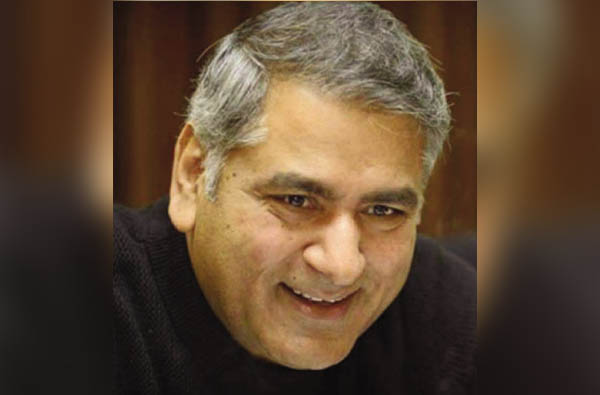The US warning to Pakistan and analysis of regional politics

By Dr Ashraf Chohan
Chairman PMLN UK
Chief Editor Daily Rapid Lahore
The United States has recently expressed significant concerns regarding Pakistan’s ballistic missile development program, particularly the advancement of long-range missile capabilities that could potentially reach beyond South Asia, including U.S. territories.
Deputy National Security Adviser Jon Finer labeled Pakistan’s missile program as an “emerging threat,” highlighting the increasing sophistication of its missile technology. He noted that if current trends continue, Pakistan may develop the capability to strike targets well beyond its immediate region.
In response to these developments, the U.S. has imposed sanctions on entities associated with Pakistan’s missile program. Notably, the National Development Complex (NDC), a state-run defense agency overseeing missile development, has been targeted. These sanctions aim to impede Pakistan’s progress in enhancing its missile capabilities.
Pakistan has dismissed the U.S. allegations as unfounded and lacking rationality. The Pakistani Foreign Ministry emphasized that the country’s strategic capabilities are solely for defending its sovereignty and maintaining regional stability, asserting that they should not be perceived as a threat.
This situation has added tension to U.S.-Pakistani relations, which have experienced fluctuations over the decades. The U.S. continues to seek clarity on Pakistan’s missile objectives, questioning the motivations behind developing capabilities that could potentially be used against the U.S.
India and The US relations :-
India and the United States share a robust and growing strategic partnership, underpinned by shared democratic values, mutual economic interests, and collaboration on global security challenges. The relationship has significantly deepened over the past two decades, particularly in defense, trade, technology, and energy.
Key highlights include the Quad partnership with Japan and Australia, aimed at ensuring a free and open Indo-Pacific, and India’s designation as a Major Defense Partner, facilitating access to advanced U.S. defense technology. Bilateral trade has grown rapidly, and both countries collaborate on cutting-edge technologies like AI, space exploration, and clean energy.
While occasional differences arise on issues such as trade policies and human rights, the two nations continue to strengthen ties through high-level dialogues and initiatives like the India-U.S. Strategic Partnership Forum. The relationship is seen as vital for addressing global challenges like climate change, counterterrorism, and the rise of China.
US and Israel relations :-
The current relationship between the United States and Israel remains strong and strategic, marked by mutual interests in security, economic cooperation, and shared democratic values. The U.S. continues to provide significant military aid to Israel, including funding for the Iron Dome missile defense system, and both nations coordinate closely on regional security issues, particularly regarding Iran and counterterrorism.
While bipartisan support for Israel remains a cornerstone of U.S. foreign policy, there are evolving dynamics. Recent tensions have emerged over Israel’s judicial reforms and its approach to the Palestinian issue, with the U.S. urging restraint and a commitment to a two-state solution. Despite occasional disagreements, the alliance remains robust, with the U.S. reaffirming Israel’s right to self-defense and supporting its position in the United Nations and other international forums.
India and Israel relations.
India and Israel share a strong and strategic relationship characterized by deep cooperation in defense, technology, agriculture, and trade. Since establishing full diplomatic ties in 1992, the partnership has grown significantly, with India becoming one of Israel’s largest arms markets. The two countries collaborate on counterterrorism, intelligence sharing, and cybersecurity, addressing mutual concerns over regional and global security threats.
India has also benefited from Israeli advancements in agriculture, water management, and innovation, fostering closer economic and technological ties. Despite this, India balances its relationship with Israel by maintaining its traditional support for Palestinian statehood, reflecting its broader foreign policy approach in the region. The partnership remains a key pillar of India’s West Asia policy.
Options for Pakistan
Given the evolving dynamics between the U.S., Israel, and India, Pakistan faces several strategic challenges but also opportunities to recalibrate its foreign policy. Here are some strategic options for Pakistan:
- Strengthening Alliances with China and Gulf States • China: Deepen the China-Pakistan Economic Corridor (CPEC) and enhance military and economic ties to counterbalance India’s growing partnership with the U.S. • Gulf States: Strengthen relations with Saudi Arabia, UAE, and Qatar to secure economic investments and energy security, while maintaining neutrality in regional disputes.
- Diversifying Global Partnerships • Engage with Russia, Turkey, and Central Asian states to reduce dependence on traditional allies and gain access to new markets, technologies, and military resources. • Enhance ties with European nations by promoting trade and presenting Pakistan as a stable partner in counterterrorism and climate initiatives.
- Repositioning in U.S. Relations • Focus on rebuilding trust with the U.S. by highlighting Pakistan’s role in regional stability, counterterrorism, and its importance in Afghanistan. • Emphasize shared interests like combating extremism, addressing climate change, and supporting regional trade.
- Engaging Israel Cautiously • While politically sensitive, Pakistan could consider backchannel diplomacy with Israel to explore mutual interests, particularly in technology and counterterrorism, without compromising its support for Palestine.
- Improving Ties with India • Seek limited détente with India to reduce military expenditures and foster regional economic cooperation, focusing on trade and people-to-people exchanges. • Address outstanding issues like Kashmir through diplomacy, while maintaining national security priorities.
- Economic and Technological Resilience • Invest in economic reforms, technological advancement, and education to reduce dependency on foreign aid and build a self-reliant economy. • Leverage Pakistan’s geostrategic location as a hub for trade between Central Asia, the Middle East, and South Asia.
- Playing a Mediatory Role • Position Pakistan as a neutral player in regional disputes (e.g., between Iran and Saudi Arabia or the U.S. and China) to gain diplomatic leverage and goodwill.
By pursuing a pragmatic, multi-vector foreign policy, Pakistan can navigate the challenges posed by the U.S.-Israel-India alignment while safeguarding its national interests.



